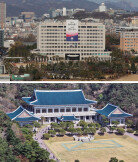Employees Given Additional 43 Days for Vacation a Year
Employees Given Additional 43 Days for Vacation a Year
Posted August. 29, 2003 23:14,
The National Assembly passed the revised labor law which introduces the five-day work week during its plenary session.
As a result, the five-day work week will be phased in from next July at large-sized corporations. The major changes brought by the new labor law are: total work hours per week mandated by the law would be reduced from 44 hours to 40 hours; total holidays will jump from 15 to 25 days; employees hired for less than one year would be given one day holiday per every month worked.
The number of annual holidays will be increased from the current 91 to 101 days to 134 to 144 days. During today`s plenary session participated in by 230 lawmakers, the new law was passed by the vote of 141 to 57 with 32 blank ballots.
The Federation of Korean Trade Unions and the Korean Federation of Trade Union announced in a statement, We will incapacitate the law through collective bargaining on the workplace. We will exert an all-out effort to revise the poisonous clause that sacrifices non-regular workers at small firms and sets back working conditions. The trade unions` strong opposition against the new system is expected to pose an obstacle in implementing the new law.
Meanwhile the Korean Employers Federation said, We highly evaluate the standards on reduction of working hours in that it would eliminate uncertainties in the workplace. It also added, We expect that the rewritten labor law will be well reflected in collective bargaining and regulations on employment.
Along with the bill on the five day workweek, the National Assembly passed the special law on assistance for employees at small companies, major contents of which are financial support for small-firm employees to establish new businesses, loans for their children`s tuition and priority given to them in purchasing houses. The law on management of indirectly invested assets was also given the green light to allow banks to deal with financial trust services.
But the bill on the collective lawsuit related to stock trading was withheld with the ruling and opposition parties wrangling over how to prevent reckless lawsuits. The two parties agreed to discuss the issue again in the September plenary session of the National Assembly.







